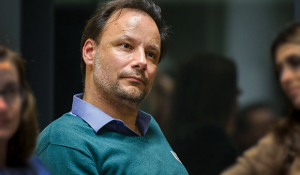Psychologists can and should be heard in the debate on the legalization of euthanasia and assisted suicide, and intervene whenever someone declares their wish to die. These are the conclusions of Miguel Ricou, a psychologist and researcher at CINTESIS – Center for Health Technology and Services Research, and of Tony Wainwright, a researcher at the University of Exeter in the United Kigdom.
The study that will be published shortly in the European Psychologist, emphasizes that “suffering can transform people, but, for that to happen we must be able to adapt”. However, “in some cases, suffering is so extreme that no form of adaptation can actually be envisioned, and to deny the right to die can perpetuate the person’s suffering”.
In this context, the researchers in the field of Psychology worry that there is no scientific evidence that can help differentiate between the patients that are able to adapt to suffering even if they eventually manifest their wish to die; and those who will be enduring constant psychological suffering.
“One of the most difficult decisions for a health professional to take is to know if euthanasia is on the best interest of a patient. In other words, to know if a patient wishing to die is actually making an informed and definite decision and if that decision represents indeed his or her best interest. Psychologists will surely be the best-qualified professionals to do that”, argues Miguel Ricou, revealing that psychologists must play a role in such evaluation and orientation. However, even in those countries where euthanasia is legal, psychologists are not being called upon to intervene.
A previous study on suicide authored by the same CINTESIS researcher, showed that certain factors increase the probability of people trying to take their lives. “The wish to die seems to be related to lower religiousness, less functional capacity, more pain, lack of social and family support, and a feeling of loss of dignity” says the psychologist, explaining that depression and awareness of being a burden to others also contribute to the manifestation of the wish to die. “A person who is considering to end his or her life is faces the most difficult decision a human being may take. Psychologists must be present in these decision-making”, states the study.
Given the psychological dimensions involved in this type of decision, the researchers argue that psychologists must be call upon to contribute to the current debate regarding the legalization of euthanasia in Portuguese society. More than that, legislation should be based more on scientific evidence and less on personal values. What is at stake is the best interest of the patient. Subsequently, these professionals should play a role on the ground with patients who request early death, with their families and, possibly, with other professionals who may be involved in the process, regardless of whether or not there is a change in the law.
“Psychologists should evaluate the characteristics of personality or other factors that may be hastening or inhibiting the request for early death”, sum up the authors, pointing out that these professionals must be specifically trained to provide counselling in the context of request for early death”


